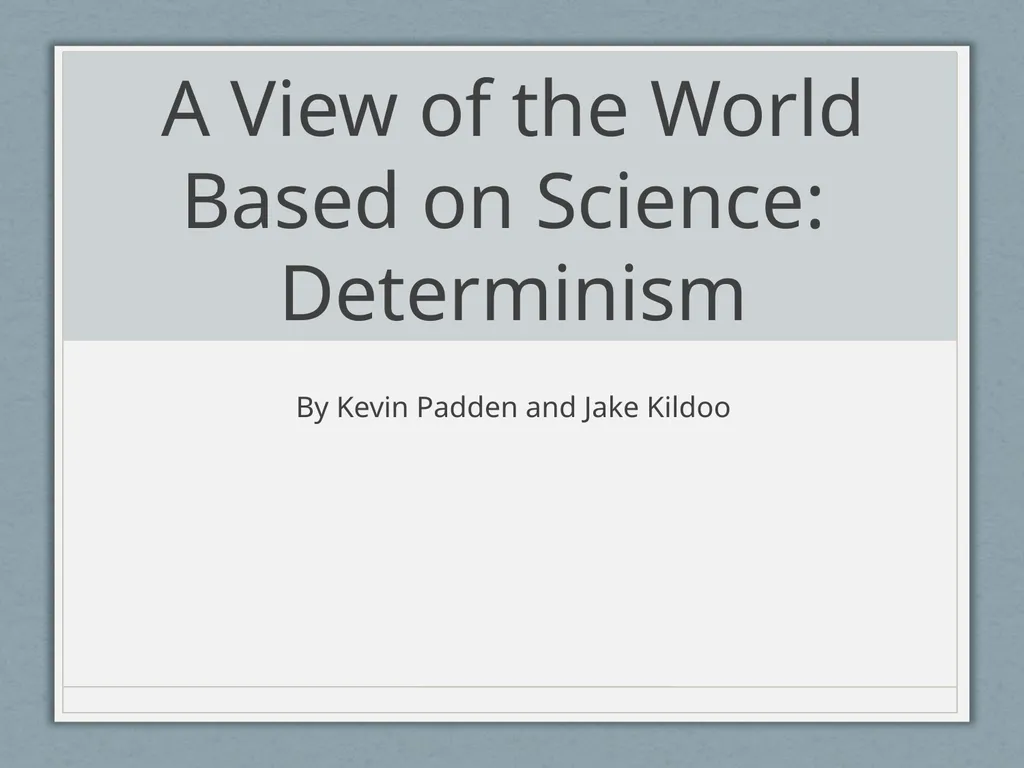
Author : stefany-barnette | Published Date : 2025-05-23
Description: A View of the World Based on Science: Determinism By Kevin Padden and Jake Kildoo An Overview Traditionally, science claims that it can explain all of nature. Need to make the world seem understandable. Science replacing religion. ThisDownload Presentation The PPT/PDF document "" is the property of its rightful owner. Permission is granted to download and print the materials on this website for personal, non-commercial use only, and to display it on your personal computer provided you do not modify the materials and that you retain all copyright notices contained in the materials. By downloading content from our website, you accept the terms of this agreement.
Here is the link to download the presentation.
"A View of the World Based on Science: Determinism"The content belongs to its owner. You may download and print it for personal use, without modification, and keep all copyright notices. By downloading, you agree to these terms.













